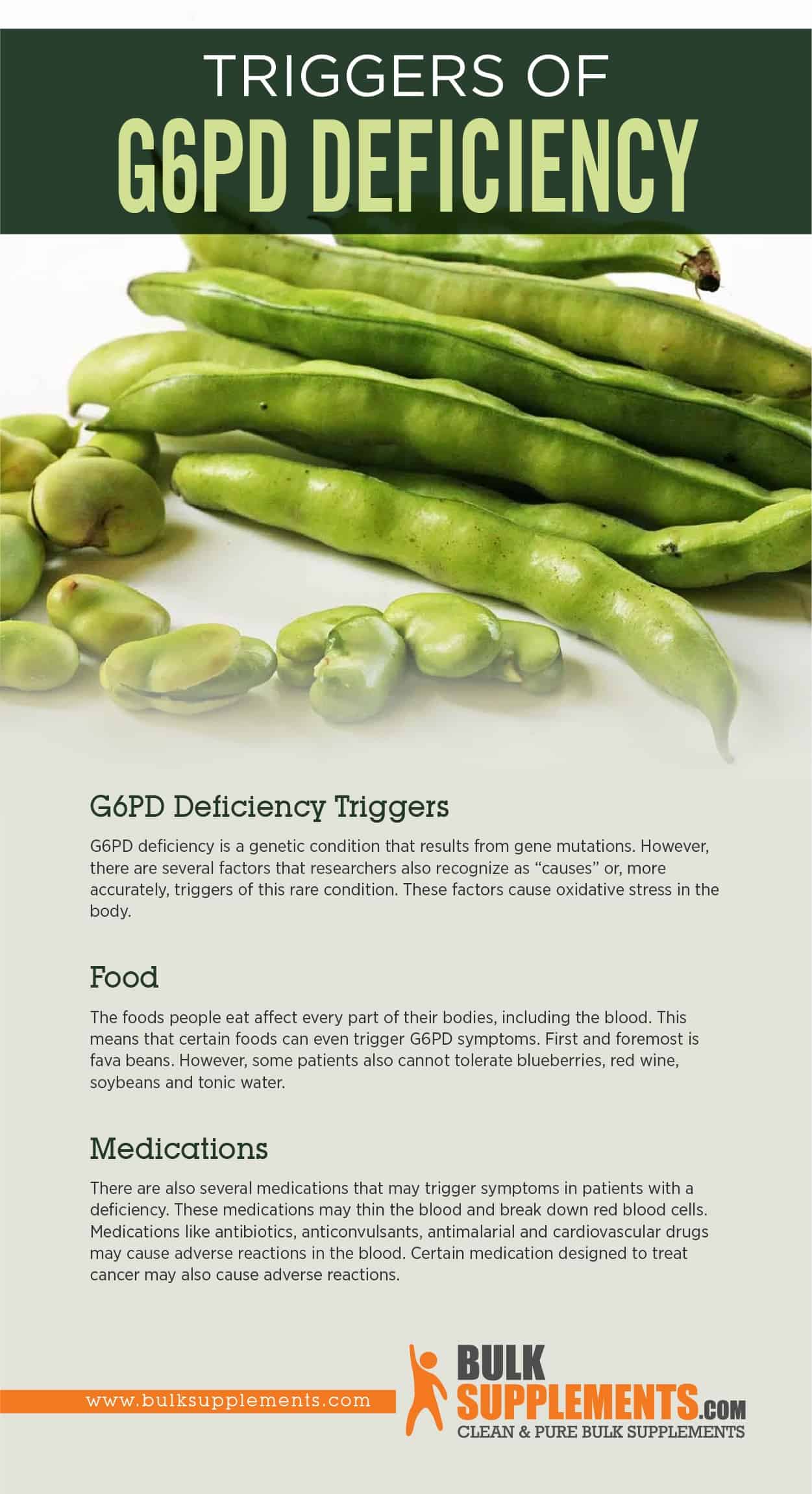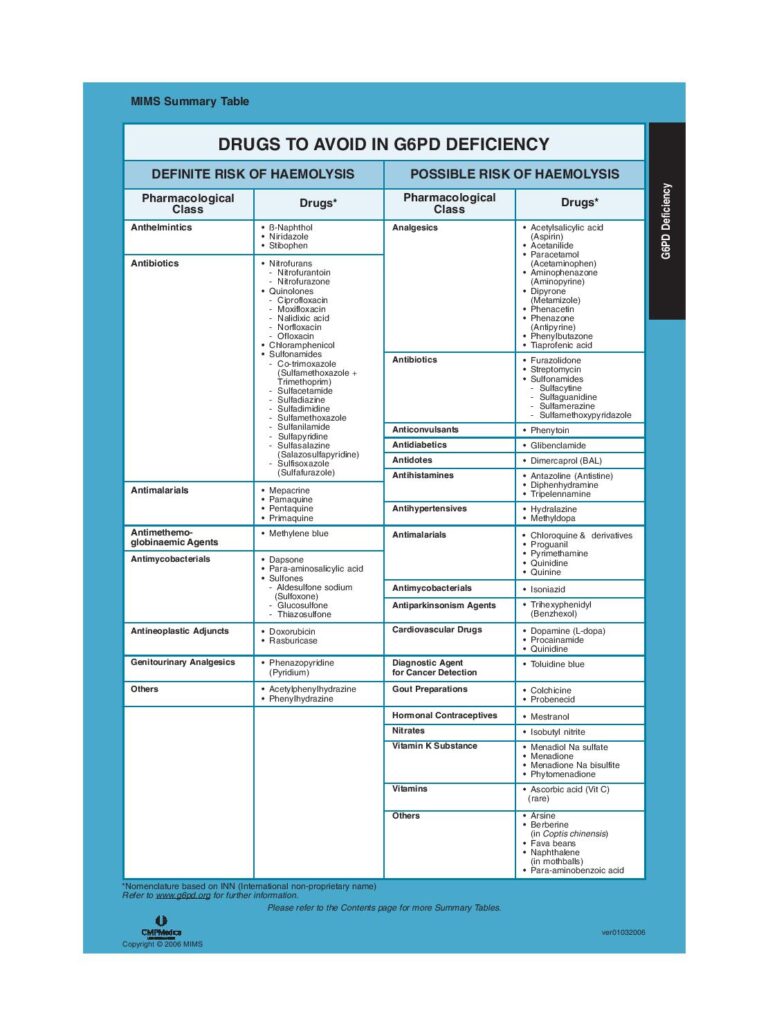List Of Food To Avoid For G6pd

For individuals living with Glucose-6-Phosphate Dehydrogenase (G6PD) deficiency, managing their diet is crucial for preventing hemolytic anemia, a condition where red blood cells are destroyed faster than they can be made. Understanding which foods to avoid and why is vital for maintaining their health and well-being. This article provides a comprehensive list of foods that individuals with G6PD deficiency should carefully consider avoiding.
G6PD deficiency is a genetic disorder affecting millions worldwide. While many with the deficiency remain asymptomatic, exposure to certain substances, including foods, can trigger a hemolytic crisis. This can lead to symptoms such as jaundice, fatigue, and shortness of breath, requiring medical intervention.
Foods to Approach with Caution
Legumes: A Common Trigger
Perhaps the most well-known food to avoid is the fava bean, also known as the broad bean. Fava beans contain vicine and convicine, compounds known to induce hemolysis in those with G6PD deficiency.
Beyond fava beans, other legumes like soybeans, peanuts, lentils, and peas should be approached with caution. Some individuals may tolerate these in small amounts, while others might experience reactions.
Certain Beans and Peas: Assessing Your Tolerance
While often grouped with other beans and peas, certain varieties present varied risks. Some people with G6PD deficiency can tolerate certain beans in small quantities while others may react severely.
Careful monitoring is crucial if you choose to introduce any beans or peas into your diet.
Blueberries and Other Berries: The Anthocyanin Question
Some studies suggest that berries high in anthocyanins, such as blueberries, can potentially trigger hemolysis. However, the evidence is not conclusive, and the risk likely varies depending on the individual and the amount consumed.
It's best to consult with a healthcare professional about berry consumption if you have G6PD deficiency.
Red Wine: Potential Sulfite Concerns
Red wine, in particular, contains sulfites, which are added as preservatives. Some individuals with G6PD deficiency might be sensitive to sulfites, leading to a hemolytic reaction.
Clear spirits are generally safer than red wine, or at the very least, proceed with caution.
Tonic Water: Quinine and Its Effects
Tonic water contains quinine, a substance known to be problematic for individuals with G6PD deficiency. Even small amounts of quinine can trigger a hemolytic episode.
Therefore, tonic water should be strictly avoided.
Menthol-Containing Products: A Lesser-Known Risk
Some believe that menthol, found in certain candies, cough drops, and mouthwashes, can potentially trigger hemolysis in sensitive individuals with G6PD deficiency. The evidence for this risk is limited, but caution is advisable.
Carefully check labels for menthol content before consuming such products.
The Importance of Individual Tolerance and Medical Guidance
It's important to emphasize that the severity of reactions and tolerance to different foods vary significantly among individuals with G6PD deficiency. Some may experience severe reactions to even small amounts of certain foods, while others can tolerate them without issue.
Therefore, it's crucial to work closely with a healthcare professional, such as a doctor or registered dietitian, to develop a personalized dietary plan.
Dietary management is a cornerstone of managing G6PD deficiency. Keeping a detailed food diary can help identify potential trigger foods. This diary should include all consumed foods, any reactions experienced, and the timing of those reactions.
Regular medical check-ups and blood tests are essential for monitoring red blood cell levels and overall health. This will allow for prompt identification and management of any hemolytic episodes.
Always consult with a healthcare professional before making any significant dietary changes. Self-treating or solely relying on information from online sources can be dangerous.
Living Well with G6PD Deficiency
Although managing G6PD deficiency requires careful attention to diet, it is possible to live a healthy and fulfilling life. By understanding which foods to avoid, monitoring individual tolerance levels, and working closely with a healthcare team, individuals with G6PD deficiency can minimize the risk of hemolytic episodes.
Ultimately, empowering oneself with knowledge and taking proactive steps are key to living well with this condition.
This information is intended for educational purposes only and should not be considered medical advice. Always consult with a qualified healthcare professional for diagnosis and treatment of G6PD deficiency.

















